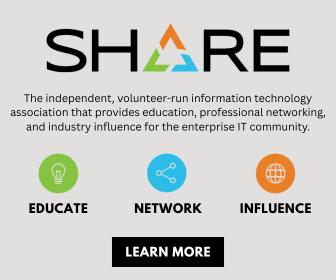My career in tech was inspired by playing video games. Some of my earliest memories involve playing games like Roller Coaster Tycoon on Windows ‘95, and Pokémon Yellow on the Game Boy Color. As I was fascinated by video games and wanted to learn how they were created, when it came time to choose a career, I explored Computer Sciences degrees with a focus on video game development.
The desire to create video games sparked my tech career but unexpectedly led me to a job working with mainframe technologies and the legendary COBOL language. When I graduated over four years ago, I wasn’t aware that graduate jobs in these technologies still existed. I thought COBOL was known only by a few senior developers and would fade away with their retirement. Now I know that’s not true. Today I’m in a career I never imagined possible: developing applications that communicate directly with mainframes for the world’s leading banks and government organizations.
From Gaming to Business Software
During my undergraduate in Computer Sciences with Games Engineering, I created video games with C++. However, I later realized that developing video games wasn’t for me. Looking back, it was a valuable experience that still influences how I write programs today – because when programming video games, writing fast and efficient code is paramount.
Having written a variety of programs, not just video games, I found writing business software the most enjoyable. I appreciated learning how the real world runs more so than the virtual one. During my postgraduate degree in E-Business, which included module requirements in both business and advanced programming, COBOL and mainframes were only briefly mentioned. This reinforced the misconceptions I had about these technologies.
In 2020, during the COVID pandemic, I graduated from university. At that time there were only a few tech companies hiring, but in the end, I actually received three job offers at once. One job offer in particular caught my eye – a graduate role at a company called Micro Focus, now OpenText, in its Application Modernization and Connectivity (AMC) department. To my surprise, this department specialised in COBOL and mainframe technologies, which I thought were inaccessible to junior developers like me. This challenged my assumptions about these technologies, but also caught my curiosity especially since Micro Focus had a reputation as a leader in these areas.
When I started my graduate role, I was taught COBOL programming, which blew my mind and made me realize just what this language was capable of. After completing the training, I joined the Visual Studio IDE team to work on an extension allowing development and compilation of COBOL programs in Visual Studio. From there, I joined the AMC communications team to develop applications for mainframe connectivity. These applications allow developers to interact with a mainframe from their personal computer, like uploading and downloading files, compiling and running COBOL programs, and synchronizing between workstation and mainframe source control.
Creating a COBOL training course
My background in business and programming prepared me for an exciting opportunity to expand my role. Last year, I created OpenText’s ‘Learn COBOL in 1 Day’ training course, designed to enable developers to understand the essentials of COBOL in just two hours. A comprehensive day’s study equips them with the skills to edit, compile, and debug COBOL applications. This course benefits both seasoned industry professionals and newcomers, providing a smooth on-ramp to COBOL programming.
The aim was to create the course to be accessible for everyone, from experienced COBOL developers wanting a refresher to those who have never seen a line of COBOL in their life. I chose how the course was structured, wrote the script, recorded myself reading the script, and edited the videos. While developing the course, I tried to challenge misconceptions and answer many questions I had before starting my job at OpenText. For example, how and why does COBOL continue to be used in the 2020s? What’s the business case for continuing to use it in the future? Many may be surprised to learn just how critical COBOL remains in the modern world.
Although I’ve completed several projects whilst at OpenText, my favourite to date has been creating the COBOL training course. Looking ahead, I would love to develop more training courses, specifically designing and writing the scripts—although I still have a lot more to learn first!
The average age of COBOL programmers has remained relatively high for decades, as many who began working with COBOL in the past continue to do so, but now developers of any age can receive training in COBOL. With billions of lines of COBOL still used today, COBOL is not only alive—it’s thriving—and these legendary technologies offer a viable career path.
My advice to those starting out on their tech career is simple: keep your mind and options open.








0 Comments